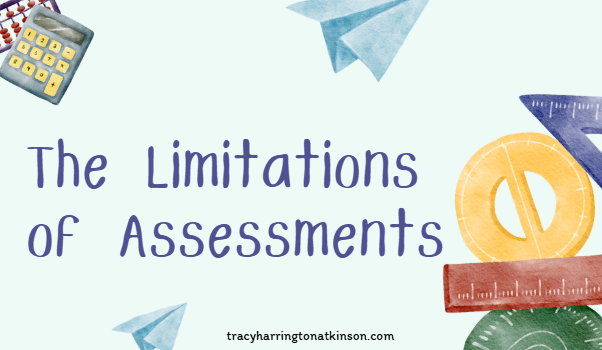Assessments are a common tool used in education, employment, and personal development to measure abilities, skills, and knowledge. While they provide valuable data, it’s important to understand their limitations. Relying too heavily on assessments can present a narrow view of a person’s potential, particularly when it comes to gifted learners, emotional intelligence, creativity, or other complex qualities that cannot be easily quantified.
1. Limited Scope of Measurement
Most traditional assessments, such as standardized tests or quizzes, focus primarily on academic skills, factual recall, or problem-solving abilities. While these aspects are important, they fail to capture the full range of human intelligence or potential. Gifted individuals, for example, often demonstrate creativity, critical thinking, emotional depth, or leadership abilities that assessments may overlook. These qualities are just as vital to personal and professional success but do not always fit neatly into the structures of a standardized test.
2. Cultural and Socioeconomic Bias
Assessments are often designed with a particular cultural or socioeconomic background in mind. As a result, they may not be equally fair or relevant to all individuals. For example, students from different cultural backgrounds may be unfamiliar with certain language, references, or scenarios presented in a test, leading to lower scores that don’t accurately reflect their true abilities. Similarly, those from disadvantaged socioeconomic backgrounds may have had fewer resources or opportunities to prepare, further skewing their performance. These biases can unfairly affect assessment outcomes, limiting the usefulness of results.
3. Pressure and Anxiety
One of the most significant limitations of assessments is the stress and pressure they place on individuals. For some, the high stakes of an exam or test can lead to performance anxiety, which negatively impacts their ability to demonstrate their true potential. Gifted learners, in particular, may feel overwhelmed by the expectation to perform at an elite level or may disengage entirely if they find the task unchallenging. This kind of pressure can undermine the validity of an assessment, making it less a measure of ability and more a reflection of the stress and anxiety experienced during the process.

4. Overemphasis on Quantitative Results
Most assessments focus on measurable outcomes: numbers, grades, or rankings. While these metrics offer a sense of comparison, they don’t always capture the qualitative aspects of a person’s learning journey. A gifted learner, for example, may not perform well on a traditional test due to its rigid structure, but that doesn’t mean they lack intellectual ability or creativity. In fact, many gifted individuals thrive in open-ended, creative environments that assessments cannot measure. The reliance on quantitative results can reduce individuals to mere numbers, disregarding the nuances that contribute to their full potential.
5. Fixed Mindset vs. Growth Mindset
Assessments, especially those that focus on grades or rankings, can foster a fixed mindset in individuals. They may come to believe that their abilities are predetermined and cannot change. This can limit their willingness to explore new challenges, take risks, or try again after failure. A growth mindset, on the other hand, encourages the belief that abilities can be developed over time. Traditional assessments that focus on outcomes rather than effort or improvement can inadvertently discourage this mindset, leaving individuals feeling boxed in by their results.

6. Lack of Personal Context
Assessments often fail to consider the broader context of a person’s life. For example, personal challenges such as health issues, family circumstances, or emotional struggles can all influence an individual’s performance on an assessment. Without this context, an assessment may misrepresent a person’s true capabilities. A gifted learner who struggles with social interactions may not perform well on group-based assessments, but this does not reflect their intellectual capacity or creativity. Assessments that ignore personal context can lead to misinterpretations of performance and unfair judgments about an individual’s potential.
7. Narrow Definition of Success
Finally, assessments often define success narrowly. They measure a specific set of skills, but they don’t account for the full range of abilities and qualities that contribute to success in life. For instance, emotional intelligence, resilience, creativity, and interpersonal skills are all crucial elements of success that assessments may fail to measure. In focusing on only one type of achievement, assessments risk neglecting the broader skills and experiences that individuals bring to the table.

Conclusion
While assessments can provide useful insights into specific areas of learning or performance, they are not infallible. It is crucial to recognize their limitations and to consider them as only one piece of the puzzle. True potential is complex, multi-faceted, and not easily captured by a single test or number. By adopting a broader perspective on growth and learning—one that values qualitative factors such as creativity, emotional intelligence, and perseverance—we can ensure that individuals are not defined solely by their assessment scores. In doing so, we open the door to a more inclusive and holistic understanding of success, one that truly reflects the diverse range of human potential.





Comments are closed